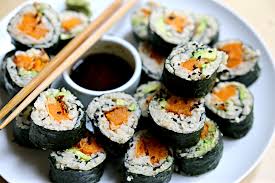One of the biggest benefits I think I had of staying home for college was and is the home-cooked meals. Being a New York native, it is par for the course to eat out on your breaks in college or during work. However, rarely do I hear about the college students or New Yorkers who bring home-cooked meals (or the occasional lunchable—no shame!) with them to college or work. I don’t think I would have survived overspending on eating out as an unemployed college student. Even once there was money flow, I had to properly budget my money if I was to survive New York City’s living costs however long I needed to.
The biggest expense after rent and utilities is food, of course. As a single woman, if I didn’t still live with my parents, it would have cost me thousands more monthly to live a comfortable life in New York City. I have heard plenty of horror stories about college students who either dorm or live off-campus forced to live paycheck to paycheck trying to decide whether to use their little money left on rent (or tuition/loan payments) or food. If there is any advice I can give, it’s to save as much as you can if your family is willing to financially support you. If not, split your payments with roommates if possible. Life is so much better when you don’t have to be hyper-independent.
As much as I really wanted to move out of my parent’s two-bedroom apartment in the Bronx at 19, I knew I didn’t have a plan in mind. And I hadn’t yet developed trust in my ability to feed myself without my mother on hand. From that point to now, I have understood the importance of conserving money, energy, and time. It might be true that you have to spend money to make money, but you also have to make your money grow and last enough so that you don’t have to work your entire life. Start through being mindful of what isn’t worth your “MET” (money, energy, and time), and assess how much of your MET is being wasted. Then, invest in people, places, and things that will maximize your MET.
Food is fuel. And given how quickly time elapses, food should be as healthful and last as much as your money is making it. That’s why buying in bulk is the best. The less grocery runs you have to make after still having a steady supply of food, toiletries, cleaning supplies, and other household items needed for daily or weekly use, the more money, energy, and time you save every month. Money isn’t just important in this equation—the more time you invest into your health, the more time and energy you will have to live your life.

Home-cooked meals are exactly one of those things that will maximize your MET. According to an Aetna article, home-cooked meals are proven to be healthier than takeout meals, giving us a lower calorie intake, a more health-conscious mentality, and mental productivity. As a New Yorker, home-cooked meals have brought me closer to a slow-living lifestyle I would like to live more of if and when I decide to move out of the city. Eating out (and going fast in general) may get us many of the things we want and need at a convenient speed, but constantly engaging in consumptive habits will at some point remind us we need to slow down.
My college campus was one of the few places where I felt I could slow down. Even while under the social pressure to move and act fast, there were always designated spaces to be in stillness and be encouraged to not over-consume in body, mind, and spirit. Making use of the college food pantry (and pre-made lunches), the shuttle bus, counseling services, the college library, and more are great investments towards getting more for less, and building a life of growth instead of consumption.

By Daeli Vargas
Daeli is a recent graduate from the City College of New York with a BA in English and a publishing certificate. She is from the Bronx and is very passionate about all things literary. She hopes one day to publish many books of her own and share her passions worldwide.
For over 20 years, the Campus Clipper has been offering awesome student discounts in NYC, from the East Side to Greenwich Village. Along with inspiration, the company offers students a special coupon booklet and the Official Student Guide, which encourages them to discover new places in the city and save money on food, clothing, and services.
At the Campus Clipper, not only do we help our interns learn new skills, make money, and create wonderful e-books, we give them a platform to teach others. Check our website for more student savings and watch our YouTube video showing off some of New York City’s finest students during the Welcome Week of 2015.





